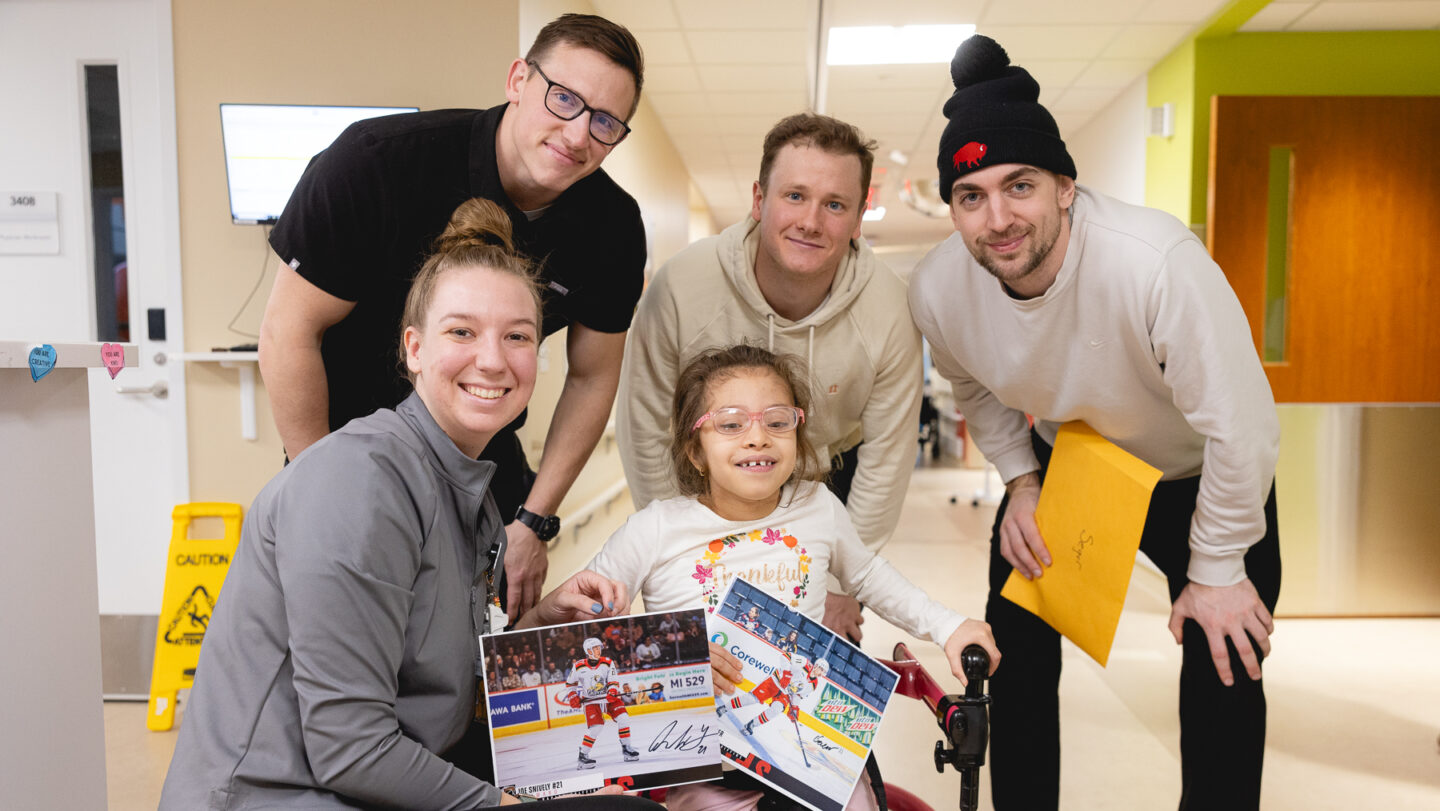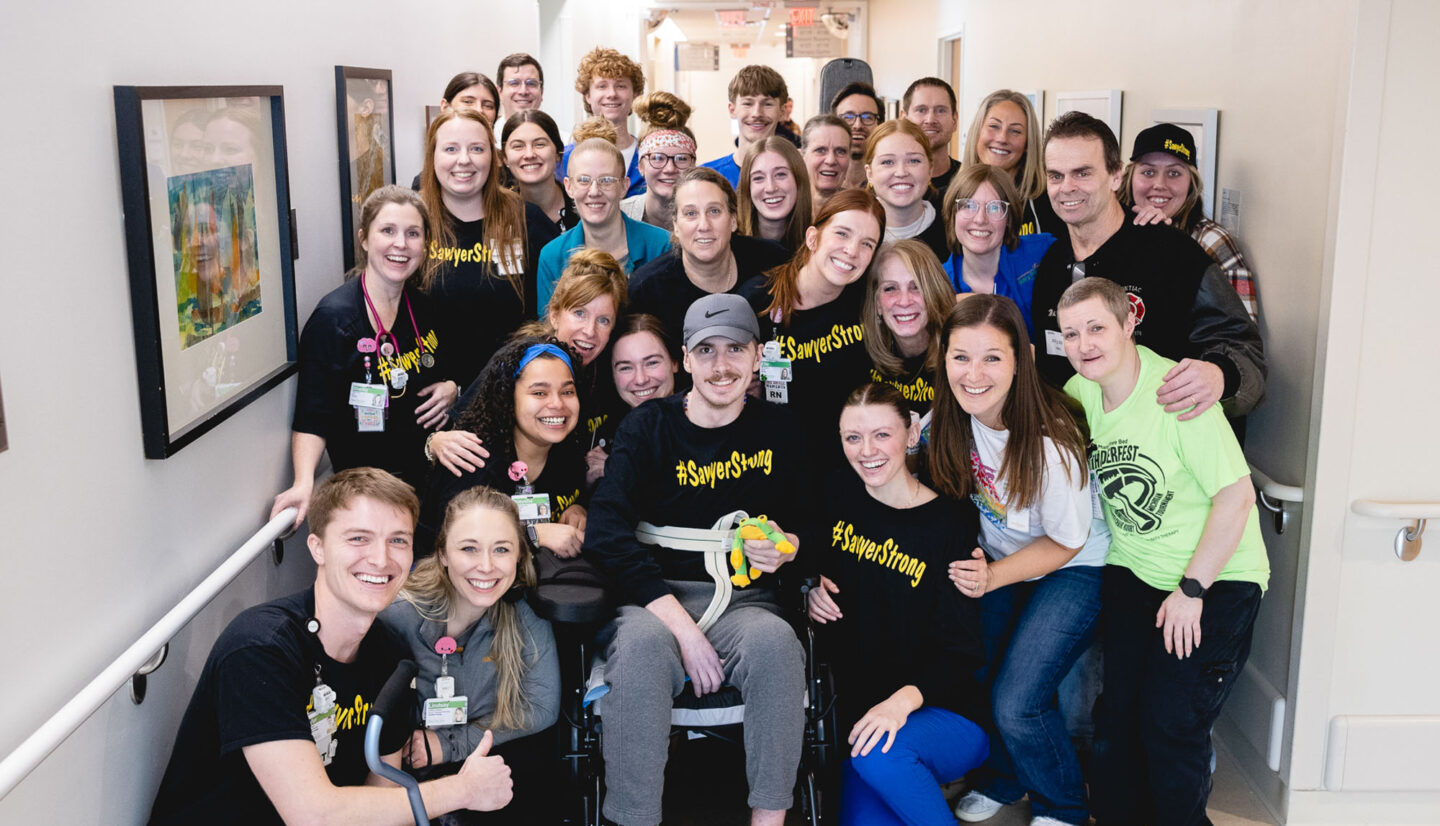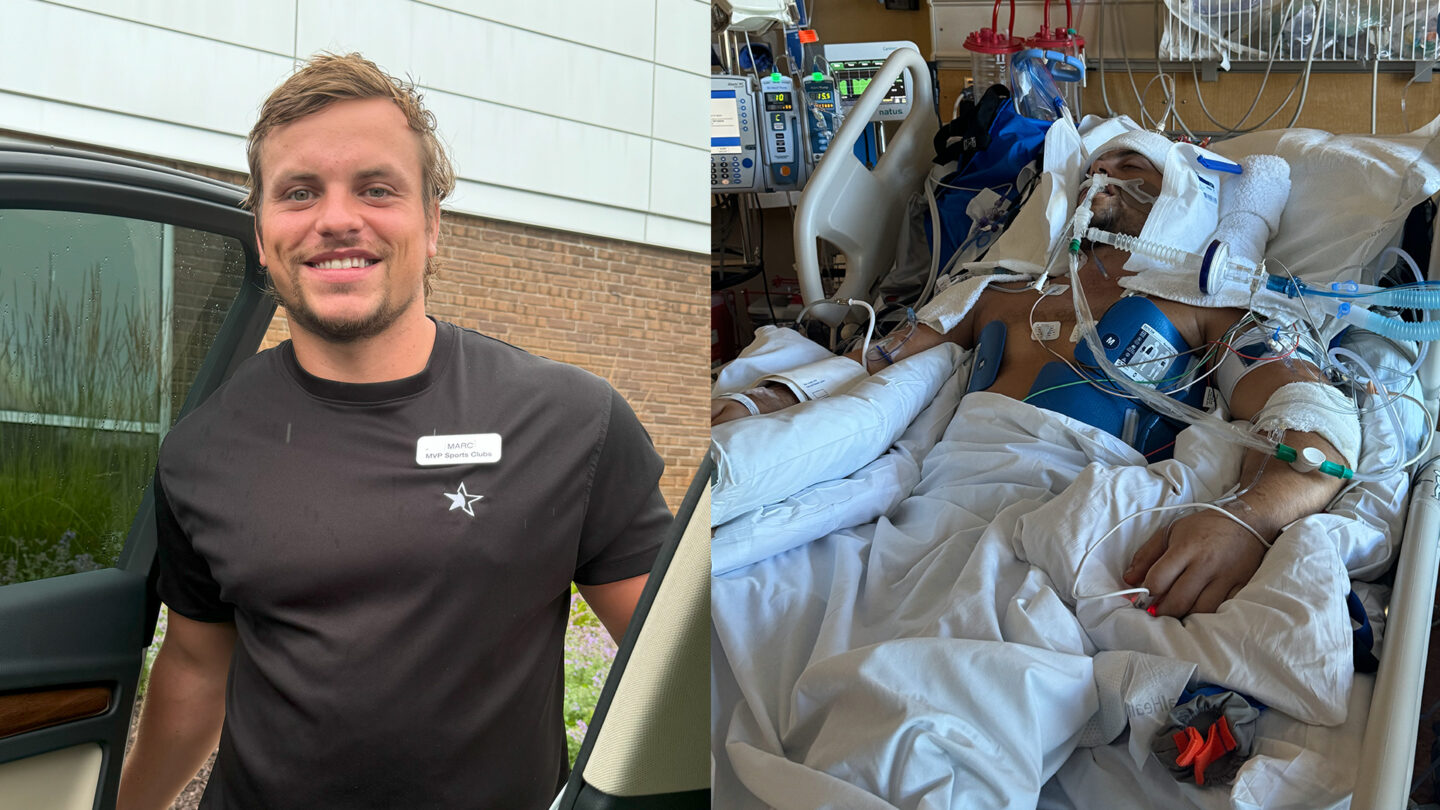Posted on February 15, 2013
Robert Clark Defies Odds After Suffering Guillain-Barré Syndrome
Robert Clark’s morning seemed ordinary enough. He went through his normal routine and played tennis. It wasn’t until the backache set in that he thought something might be wrong. He went home and took some ibuprofen, something he rarely resorted to.
The next day, his back felt better, but his fingertips tingled and one side of his body felt numb. Robert thought he was having a stroke.
He drove to the hospital and paced the waiting room until he was admitted that evening. The next morning, he had four MRIs, two CAT scans, an echocardiogram and several other tests. The doctors ruled out the possibility of a stroke
The next morning, Robert was paralyzed.
Doctors frantically tried to diagnose Robert. They sent him off for more testing. They suspected that Robert needed a spinal tap, but hesitated to skip to such an expensive and extreme analysis.
“One doctor skipped a couple steps, put his neck on the line, and decided to give me a spinal tap.”
The results confirmed that Robert had Guillain-Barré syndrome syndrome, a disorder that appears when the immune system attacks the nervous system. Doctors hooked Robert up to a bag of steroids to stabilize him.
Four days before, Robert had been playing tennis. There, laying in the hospital, he was paralyzed from the nose down.
“I couldn’t even wiggle,” shares Robert.
Doctors were unsure of when Robert contracted Guillain Barré syndrome, but his immune system began to fail after he served in Vietnam. He was exposed to Agent Orange, a substance the United States military used for chemical warfare. Agent Orange contained a deadly toxin that broke down Robert’s immune system.
Robert was stabilized, but doctors said he’d never walk again. He needed to move to a rehabilitation center.
“Two hospitals were suggested. My brother is a real computer guy. He got on there and said that Mary Free Bed looked best.”
At Mary Free Bed Rehabilitation Hospital, therapists worked to prepare Robert’s muscles for his system to reboot. His paralysis left his body one inch at a time as he went through daily physical and occupational therapy.
His occupational therapists taught him how to maneuver his wheelchair.
“It’s more than just wheeling around. It takes a little finesse,” says Robert.
The positive attitudes of the Mary Free Bed staff amazed Robert.
“I didn’t meet a bad person in that whole hospital,” Robert said, “They are so positive. They’ll do anything for you. Even the girl who mopped the floor in my room had a smile on her face.”
Robert left Mary Free Bed in his wheelchair—an incredible improvement from when he checked into the hospital, unable to even sit up.
Robert refused to believe he couldn’t walk again. At home, he decided to teach himself to walk. He made slow progress and learned to walk from one end of the hall to the other. Eventually, he decided to ditch the wheelchair completely and learned to jog. Now, Robert is back to playing tennis, a skill doctors never dreamed he could regain.
He visited one of his old doctors and the first words from his mouth were, “What are you doing out of a wheelchair?”
Robert plans to return to Mary Free Bed to show his therapists the progress he’s made and visit old friends.
“The staff at Mary Free Bed became really important parts of my life. I came in there and they were strangers; I come out and I feel like they’re my kids,” says Robert.





